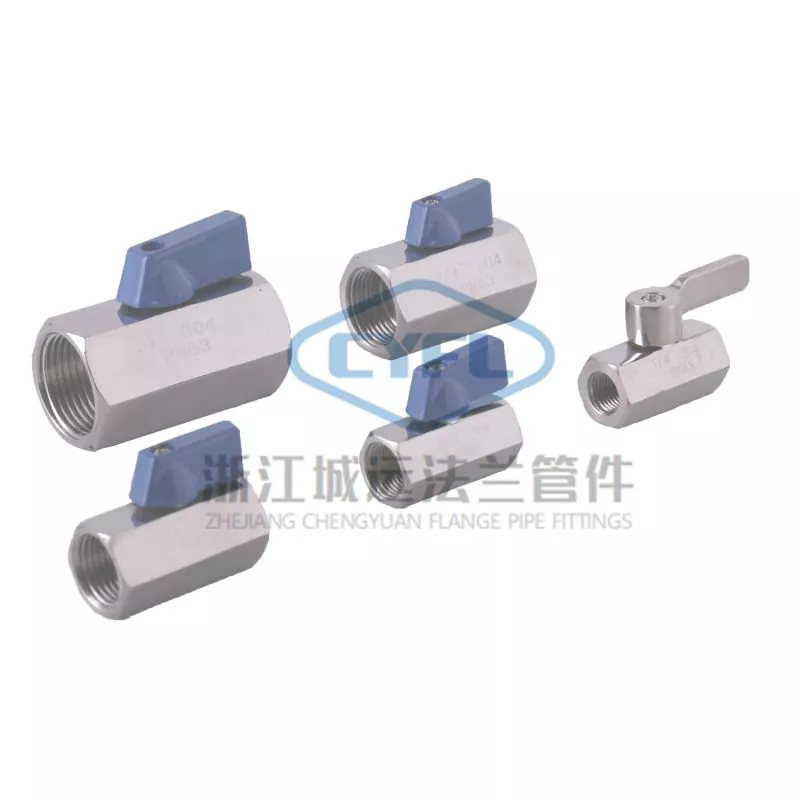Features and Benefits of Trunnion Ball Valves
2024-07-15
A trunnion ball valve is a type of industrial valve used primarily in applications where high pressure, large flow rates, and tight shut-off are required. Here's a detailed overview of trunnion ball valves, including their construction, features, applications, and considerations:
Construction and Design
1. Ball and Seats:
- Ball Design: The ball in a trunnion ball valve is supported by trunnion bearings or trunnion rings, which provide stability and reduce operating torque.
- Sealing Mechanism: Typically uses floating seats or spring-loaded seats to ensure tight shut-off when closed.
2. Body Construction:
- Two-Piece or Three-Piece: Available in two-piece or three-piece body designs.
- Materials: Constructed from various materials such as stainless steel, carbon steel, alloy steel, and sometimes exotic alloys for high-corrosion environments.
3. Trunnion Mechanism:
- Trunnion Bearings: Bearings support the ball at the top and bottom (or sides), allowing it to rotate smoothly with minimal friction.
- Seal Integrity: Provides better sealing performance under high-pressure conditions compared to floating ball valves.
4. Actuation:
- Manual or Automated: Can be operated manually using a lever or gear mechanism, or automated with electric, pneumatic, or hydraulic actuators for remote operation.
5. Sealing Options:
- Soft or Metal Seated: Depending on the application, valves may have soft seats (e.g., PTFE, elastomer) for general applications or metal seats for high-temperature or abrasive media.
Features and Benefits
1. High Pressure and Temperature Capability:
- Performance: Designed to handle high pressures and temperatures commonly found in industrial applications such as oil and gas, petrochemical, and refining.
2. Flow Control:
- Full Bore Design: Offers full bore or reduced bore options to minimize flow restrictions and pressure drop across the valve.
3. Reliable Sealing:
- Low Leakage: Provides tight shut-off to prevent leakage even under high-pressure conditions, ensuring process integrity and safety.
4. Durability and Longevity:
- Robust Construction: Built to withstand harsh operating conditions, including corrosive environments and abrasive media.
- Low Maintenance: Requires minimal maintenance due to sturdy construction and reliable sealing mechanisms.
5. Versatility:
- Wide Range of Applications: Suitable for a variety of fluids and gases including corrosive and abrasive media, steam, and hydrocarbons.
Applications
1. Oil and Gas Industry:
- Pipeline Systems: Used for pipeline isolation, flow control, and block valve applications.
- Offshore Platforms: Ideal for offshore drilling and production platforms due to their reliability and performance under extreme conditions.
2. Petrochemical and Chemical Plants:
- Process Control: Essential for controlling the flow of chemicals, acids, and solvents in manufacturing processes.
3. Power Generation:
- Steam Systems: Used in steam distribution and turbine inlet isolation in power plants.
4. Water and Wastewater Treatment:
- Water Distribution: Used for water supply networks, treatment plants, and wastewater management systems.
5. Mining and Minerals Processing:
- Slurry Handling: Suitable for handling abrasive slurries and mineral processing fluids in mining operations.
Considerations for Selection
1. Pressure and Temperature Ratings:
- Match: Ensure the valve’s pressure and temperature ratings meet or exceed the requirements of the application.
2. Material Compatibility:
- Chemical Resistance: Select materials that are compatible with the fluid or gas being handled to prevent corrosion and ensure longevity.
3. Valve Size and Connection Type:
- Size: Choose the appropriate valve size to match the piping system and flow requirements.
- End Connections: Consider the type of end connections (flanged, threaded, welded) that best suit the installation environment.
4. Actuation and Automation:
- Operational Needs: Determine whether manual operation or automated actuation (electric, pneumatic, hydraulic) is required based on operational conditions and control preferences.
5. Industry Standards:
- Certifications: Ensure the valve complies with relevant industry standards and certifications (e.g., API, ANSI, ASME) for quality and safety assurance.
Leading Manufacturers and Models
1. Cameron (Schlumberger): Provides a range of trunnion ball valves known for their reliability and performance in oil and gas applications.
2. Velan Inc.: Offers trunnion-mounted ball valves designed for high-pressure and critical applications in various industries.
3. Emerson (Fisher): Supplies trunnion ball valves suitable for severe service applications in chemical, refining, and power industries.
4. Flowserve: Known for its Durco trunnion ball valves designed for high-performance and durability in demanding environments.
5. KSB: Provides trunnion ball valves for industrial applications, emphasizing reliability and efficient flow control.
Conclusion
Trunnion ball valves are essential components in industries requiring reliable flow control and tight shut-off capabilities under high-pressure and high-temperature conditions. By selecting the right trunnion ball valve based on application-specific requirements, industries can enhance operational efficiency, ensure safety, and minimize downtime in critical processes.



